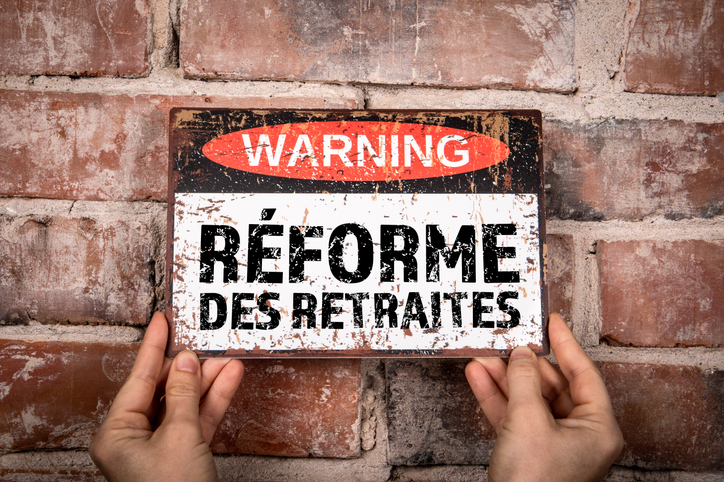Another nudge down for the French economy
Officially, France had a lucky day on Friday, 28th April. They were helped by the classic trick in communications, namely that bad news is best announced late on a Friday when everyone is in a hurry towards the weekend.
On that day, France’s credit rating was lowered from AA to AA- by the credit rating agency, Fitch. At Fitch, they chose, very graciously, to bring the news late that Friday. That’s probably the only good thing to say about that story, as seen from a French point of view.
Fitch emphasized that the French budget deficit will probably grow again this year, to minus five per cent. In addition, economic growth is weak, and Fitch assessed that the French economy was generally weaker than its peer countries.
In addition, there was a lot of focus on President Macron’s political situation, with the very long-lasting unrest about lifting the retirement age from 62 to 64 years being the focal point. The unrest on the streets was due to the fact that the law was implemented using the so-called Article 49.3, meaning the law has been implemented without a vote in the parliament.
Putting perspective on the change
The French Finance Minister Bruno La Maire actually commented on the rating downgrade, so it has received some attention. He argued that Fitch does not account the recently implemented pension reform with a sufficiently positive effect when it comes to the long-term budget improvement, that the reform will yield. Furthermore, the finance minister considers Fitch as pessimists.
As for the pessimists, I am sorry to say that, on behalf of France, I also belong to that group, at least when the discussion is about the country’s economy and the country as an investment destination. Some of the arguments that Fitch highlights, I think, are very serious, and even partly unusual.
The unusual thing is that the politically challenging situation for President Macron is given so much weight in the credit downgrade of an AA-rated Western European country – I think that should be noted.
Since President Macron took up his first term as president, there has been political work towards increasing the retirement age, which now became 2 years higher, from 62 to 64 years.
Gradually, many governments in Western countries call such steps a “reform”, but from my professional point of view, I would categorize the increased retirement age as a change, perhaps a major change, but no more than that.
The last major reform I can point to in Europe over the past decades is from approximately 10 years ago when the British government, with David Cameron as Prime Minister, implemented dramatic cuts in public spending, except in spending on the health sector. The savings were so profound that there was no money for the Navy to order aircrafts for the aircraft carriers that were being built. It sounds dramatic, and it was, but that’s how much it took to significantly improve the British government budget.
Since then, it is my assessment that no comprehensive economic reforms have been carried out in any European country. And I believe that the British example is an excellent measure of how big changes are needed before changes become real reforms.
I think that puts France’s political challenges into perspective, because as mentioned, the ongoing street unrest in France is now included in a credit rating, and that has perspectives.
Assessment of France’s credit rating
The more direct consequence is of course the next steps for France’s credit rating. My assessment is that France must simply go through completely different reforms and savings to avoid further steps down the credit rating ladder.
France has had a public budget deficit for decades. As mentioned, Fitch estimates that the situation will worsen to a budget deficit of minus five per cent of GDP again this year.

Once upon a time, back in 2004, France had a few months of trade surplus. Graph two shows France’s trade balance including the overseas territories, but one can adjust the statistics so France had a few months of surplus in mid-2004, if one absolutely wants to find some sunshine.
The truth is that there are notoriously and structurally internal and external imbalances in the French economy, and there is no political solution to the problem. These are the kinds of challenges that credit rating agencies are usually interested in. In my view, this is enough to expect further downgrades of the country’s creditworthiness.

The general assumption is that approximately 14 per cent of France’s population lives below the poverty line, determined according to French conditions of living. It is thus one of the steepest increases in Europe within the past years, and when one considers that economic reforms hurt before they get better, yes, there is also the prospect of even more unrest. This means that this new factor in the credit assessment will probably not disappear immediately either.
Of course, such prospects do not change my assessment that investors should underweight Europe, especially the Eurozone, in the investment portfolio. My consideration is about the speed of the credit downgrades of, for example France, is increasing. At the same time, I expect a number of Emerging Market countries to get a higher credit rating – yes, the world continues to change rapidly.






